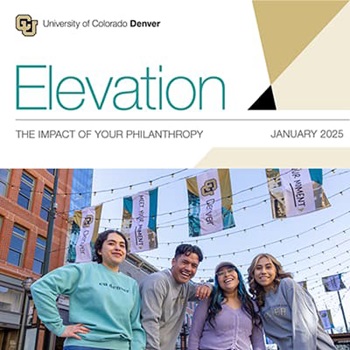Learning to Help the Brain Heal
A doctoral fellowship helps PhD candidate explore brain injuries
Mar 31, 2020
Inspired by these events, Alex developed his own interest in the brain as an undergraduate, though he originally had other plans for his career. “I had hopes of becoming a professional soccer player and played Division II soccer in college,” he says. “But then I tore my ACL and suffered a few other injuries.” Instead, Alex doubled down on his interest in the brain and proceeded to conduct research as a graduate student at Columbia University with the very doctors who treated his mother more than a decade earlier. It was during this time that he met Jonathan Shaffer, now an assistant professor at CU Denver, who eventually encouraged Alex to come to Denver as a PhD student in Clinical Health Psychology.
As a recipient of the Rick and Elizabeth Gardner Doctoral Fellowship, Alex now spends more than 20 hours a week conducting research focused on the cognitive and psychological recovery of people who have suffered neurological injuries. “This support has allowed me to devote more time to researching how the brain functions after injury, and how it can heal," he says. It’s a big departure from his days playing soccer. “The healthy brain has a near limitless ability to learn,” he explains. “That was certainly true for me. I started out as a college athlete and was intimidated at first by neuroscience. Now, my research is at the intersection of neuroscience and psychology.” One day, he hopes to collaborate with the person who inspired him most – his mother.



